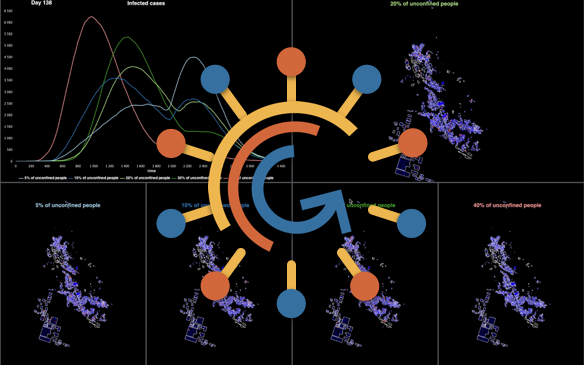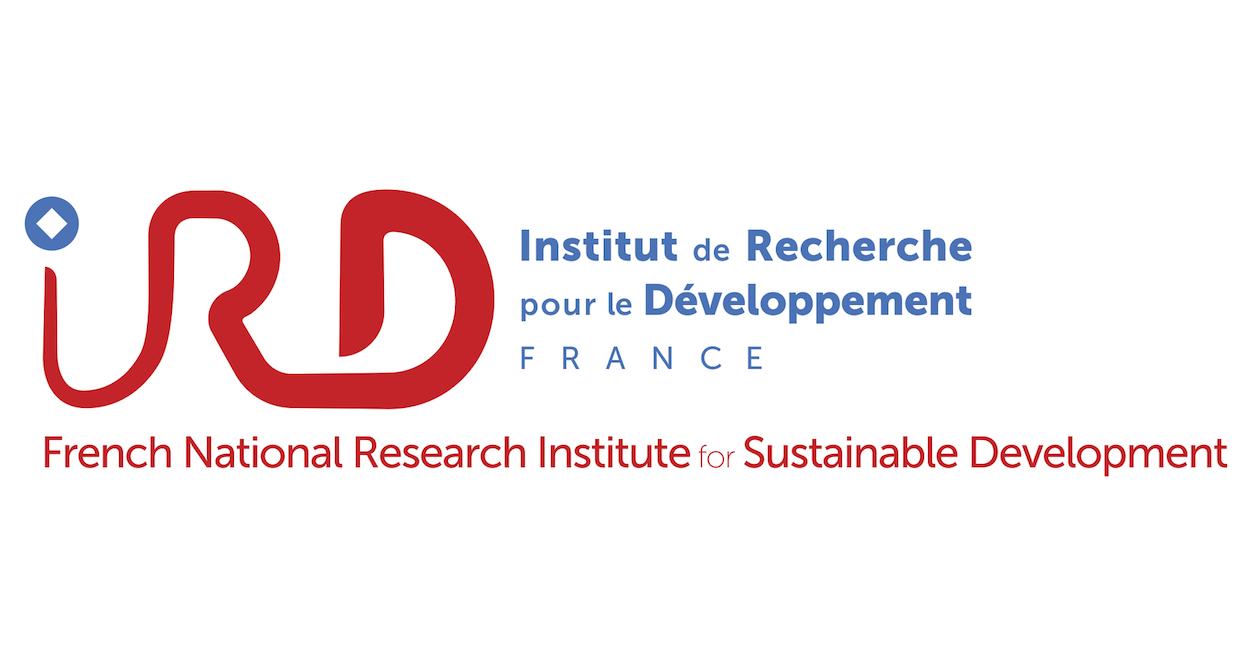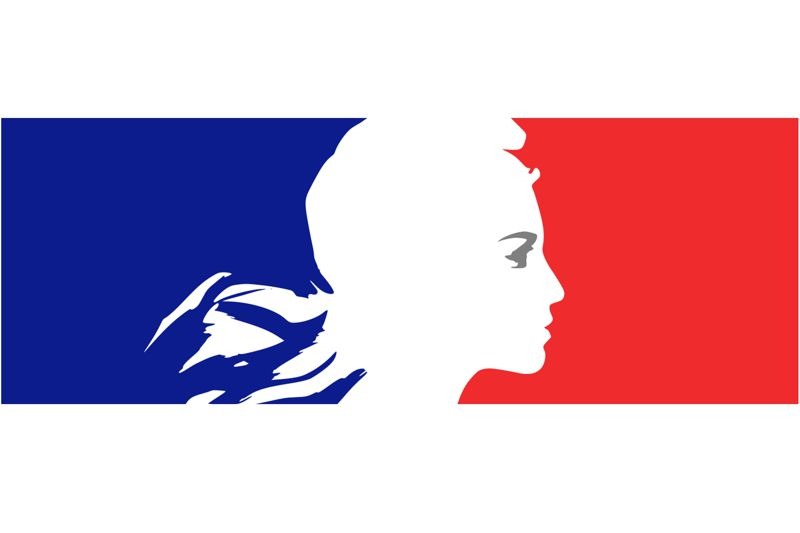
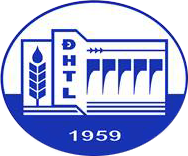
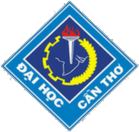



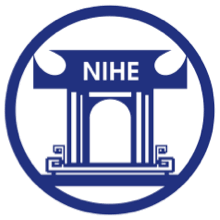
Presentation
Public health policies implemented against the CoVid19 pandemic raise a number of questions.
The Institut de recherche pour le développement (IRD) in Vietnam has set up a multidisciplinary team of researchers from its research units UMMISCO, MIVEGEC and DIADE, assisted by colleagues from Thuyloi University, Can Tho University, INRAE and SPH-HKU, to design a realistic spatial computer model called COMOKIT, on the GAMA modeling and simulation platform.
COMOKIT aims to help decision makers answer the most pressing questions by using integrated models adapted to different scales of analysis that combine:
- A sub-model of individual clinical dynamics and epidemiological status
- A sub-model of direct transmission of the infection from agent to agent
- A sub-model of environmental transmission through the built environment
- A sub-model of policy and interventions design and implementation
- An agenda-based model of people activities
Model
The base model represents the spread of COVID-19 and the impact of control policies at the scale of a commune (~ 10.000 inhabitants) using:
An Agent-Based approach
Each inhabitant is represented individually with his/her specific characteristics (age, sex, household), clinical state and daily activities based on a generated agenda
A Flexible Policy representation
An Authority agent can be programmed to apply public health control policies consisting of a combination of mitigation measures and interventions.
Numerous Realistic Scenarios
Each set of parameters (incl. the policies applied) represents a scenario, which can be explored by executing several simulations and compared against other scenarios in more elaborate experiments.
A High Portability
In most cases, only a file containing the built environment may be enough to build a simple model. More realistic scenarios will of course require more detailed datasets.
Examples
Here are some examples of COMOKIT in action
- All
- Activity restrictions
- Lockdown
- Physical Interventions
- Sensitivity Analysis
Press
- All
- French
- English
- Italian
- Vietnamese
Articles
Videos
Team
The people behind COMOKIT

